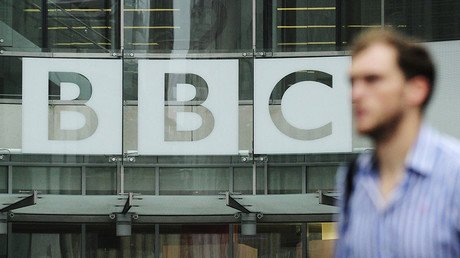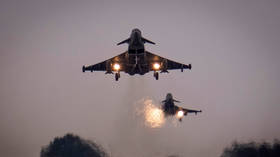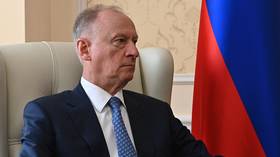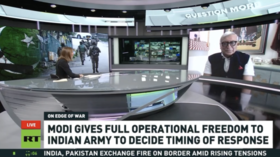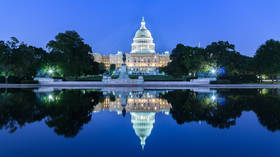‘BBC is plagued by groupthink and RT critics are ignorant about Russia’ - Tory MP Daniel Kawczynski
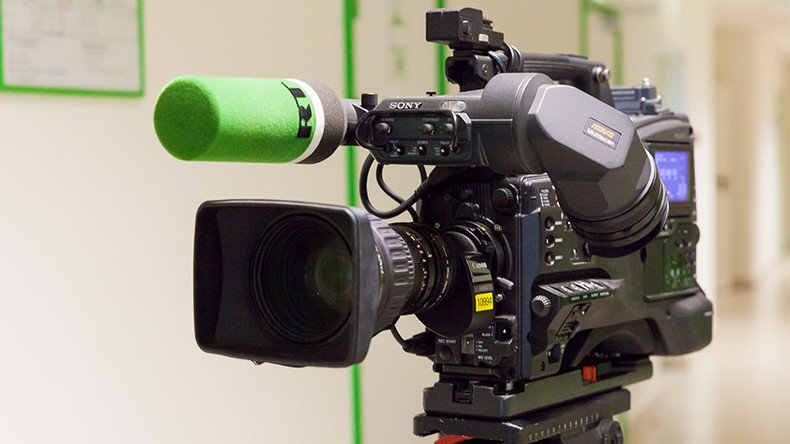
The BBC has requested additional funds to fend off RT, whose audience it says has “increased sharply” and which has a “very successful” social media presence. We asked a politician from the ruling Conservatives to comment on the battle of the international news networks.
The BBC submitted its report on the Russian media sphere earlier this year, as part of a wide-ranging parliamentary Foreign Affairs Committee inquiry that seeks to examine every aspect of the UK’s relationship with Russia.
While the authors spent time criticizing the lack of media freedom inside the country, and emphasizing its Russian service’s own success in reaching the local audience, a large part of the testimony focused on the rise of RT.
While it points out that RT’s television viewing audience rose by 60 percent between June and December last year, it says that on key issues, such as coverage of the Ukrainian conflict, “both politicians and media commentators [are] accusing it of acting as a Kremlin mouthpiece.”
In contrast, the BBC says that it “has played a significant role in providing impartial and objective reporting of the Ukraine crisis” and claims it needs an “increased digital presence” in Russia’s own language internet, as well as “enhanced news bulletins” and more staff to up its newsgathering capacity. The BBC is facing real-terms cuts after being forced to pay for over-75s TV licenses that form the bulk of its budget, though the government has channeled extra money to fund its World Service programs.
But the Polish-born Daniel Kawczysnki, who has served as an Eastern Europe Special Advisor to the government of David Cameron, believes that the BBC’s antagonistic approach to its younger Russian rival is unwarranted.
Kawczynski, 44, who has been MP for Shrewsbury and Atcham since 2005, also accuses the corporation, and the government of being “narrow” in their approach to Russia, and advocates greater engagement.
On RT: ‘We should celebrate broadcasting diversity’
The staff at RT are a very eclectic group from all over the world, and they give us a very different perspective, here in the UK, from what we get from the BBC. And conversely, it is very important for the BBC to give a different perspective, in the countries it broadcasts in as well.
We should celebrate and encourage different broadcasters to be putting out different interpretations and analysis of national and global perspectives, because a homogenous system is neither very good for the UK nor for Russia.
The people who criticize RT and say it is controlled by the Russian government are not dissimilar to those who criticize Russia constantly, and say there is no freedom in that country. These are the same people who are relatively ignorant of Russia, of the way the society functions and are not doing the necessary preparatory work to get a better understanding, both of RT and Russia.
RT is here to stay, more and more people are listening in, and I and others are very appreciative of the different viewpoint we get from it.
On the BBC: ‘Its international coverage is flawed and frustrating’
The BBC is listened to and watched by a large number of people in Russia, despite the fact that we have indications here that there are restrictions of freedom of the media in Russia – that is an important point to note.
I do think that it is important that the BBC is funded properly, so that it can operate around the world. I don’t always agree with the BBC and we have many difficulties with them here in our own country, and they have a groupthink mentality, but they are putting forward things that are of interest and importance.
What is very frustrating is that the BBC does have a very narrow perspective, and it is very focused on domestic issues. Its analysis of international events is very flawed at times, the journalism is not as professional or as effective as it should be, and that is why I celebrate that RT and other international channels are operating in our country.
If we were only to have that one perspective from the BBC, we would be going into a kind of time warp of the 1950s and 1960s – and that would be very un-progressive. That’s why I support RT and I would be very concerned at those who try to decry somehow what RT is doing.
On Russia relations: ‘We should prepare ground for post-sanctions world’
This morning I asked a question on the floor of the House of Liam Fox, Secretary of State for International Trade, and I said to him that despite the [Ukraine and Crimea-related] sanctions against Russia, there are many sectors that are not affected by sanctions and there are already many sectors investing in Russia and exporting to Russia, and so I asked him to appoint a special trade envoy to Russia so that we can build up a relationship. This is for sectors that are unaffected by sanctions, but most importantly, for the post-sanctions period.
There will come a time when we will sort out these political difficulties that we have between one another, and there will be a time when we get back to a normal political and trading relationship. We need to be there, post-Brexit, when we are in a position to strike important bilateral deals. We need to start the work process now.
I lose no opportunity to try to debate the issues of relations with Russia, because a little like with the BBC, there is a huge amount of groupthink, and whether that is in the newsroom or in our own parliament, when there is no debate about national strategic interest, that is when tactical errors are made. We need to debate why our relationship with Russia has deteriorated, and what needs to be done in order to get back to a normal relationship, with participation from both governments.
I was delighted that Theresa May met with Vladimir Putin at the G20, and I am sure that as an experienced and mature politician, she will be able to take the relationship to a very different plateau over the coming years.
The statements, views and opinions expressed in this column are solely those of the author and do not necessarily represent those of RT.
